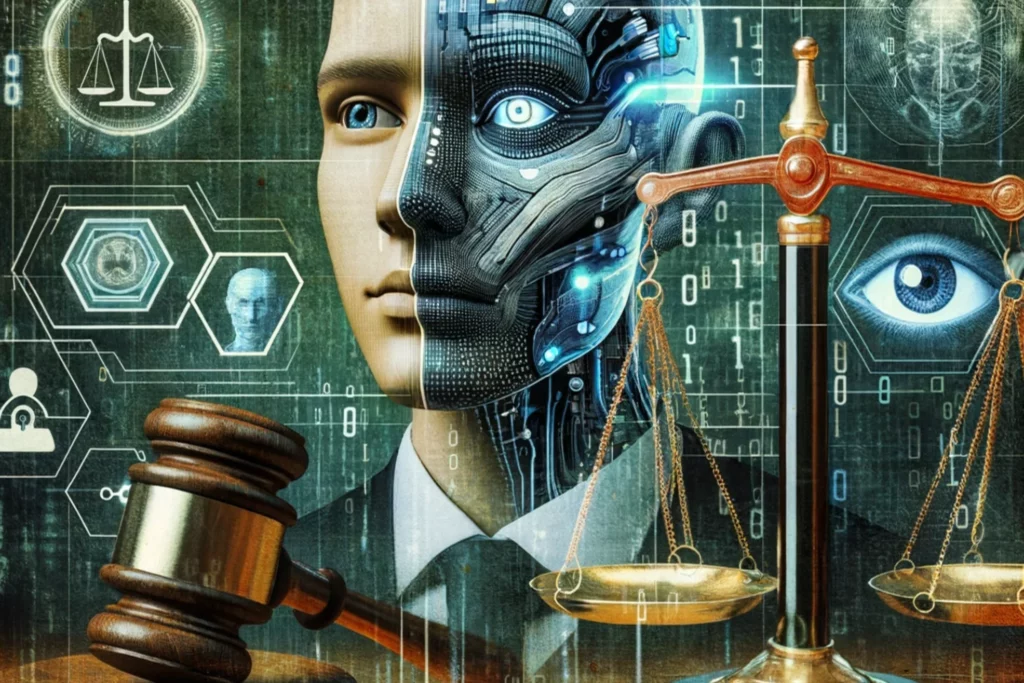In an age where technology continues to blur the lines between reality and simulation, the emergence of deepfake technology presents a multitude of challenges that extend far beyond the digital realm. Initially confined to the realm of celebrity impersonations, deepfakes have now evolved into a widespread phenomenon, capable of manipulating public perception, violating personal rights, infringing on intellectual property, and compromising data security. As the influence of these AI-generated synthetic media grows, both legislators and tech giants find themselves in a race to devise effective solutions to counter the mounting legal implications that deepfakes bring.
Key Points:
- The journey of deepfakes began in 2017 when a Reddit user, aptly named “deepfakes,” garnered attention for swapping celebrities’ faces onto adult film performers.
- Since then, the technology has proliferated, making it accessible to even ordinary individuals, and has found application not only in entertainment but also in sectors like healthcare, where it aids in tumor detection.
- Nevertheless, the technology’s potential for misuse is alarming.
- Two critical aspects of the legal landscape concerning deepfakes revolve around intellectual property rights and personal data protection.
- The victim of a deepfake does not necessarily own copyright over their own image, necessitating alternative legal avenues. Here, the right to personal data protection becomes pivotal.
- Both governments and technology giants have begun to address the deepfake challenge.
The term “deepfake” is a portmanteau of “deep learning” and “fake,” reflecting its roots in artificial intelligence technology. These digital creations are a product of intricate algorithms and machine learning techniques that manipulate data to convincingly replace faces, swap expressions, or even generate entirely new content. Once requiring substantial datasets for accuracy, deepfakes have now advanced to the point where a single photograph can serve as the basis for their creation.
The journey of deepfakes began in 2017 when a Reddit user, aptly named “deepfakes,” garnered attention for swapping celebrities’ faces onto adult film performers. Since then, the technology has proliferated, making it accessible to even ordinary individuals, and has found application not only in entertainment but also in sectors like healthcare, where it aids in tumor detection. Nevertheless, the technology’s potential for misuse is alarming. Deepfakes can be employed for post-truth politics, revenge porn, misinformation dissemination, and interference in elections, all of which raise significant legal concerns.
Two critical aspects of the legal landscape concerning deepfakes revolve around intellectual property rights and personal data protection. The World Intellectual Property Organization (WIPO) has delved into the complex question of copyright ownership in deepfakes. The issues at hand are whether deepfakes should be eligible for copyright protection and, if so, who holds the rights to that protection. WIPO’s stance suggests that if a deepfake significantly contradicts the subject’s life, it may not be eligible for copyright protection. Furthermore, it implies that copyright should belong to the creator of the deepfake, given the absence of intervention or consent from the individual whose likeness is used.
However, relying solely on copyright as a defense against deepfakes might prove inadequate. The victim of a deepfake does not necessarily own copyright over their own image, necessitating alternative legal avenues. Here, the right to personal data protection becomes pivotal. The European Union’s General Data Protection Regulation (GDPR) mandates the accuracy of personal data and grants individuals the right to be forgotten. This empowers victims of deepfakes to demand the erasure or rectification of inaccurate, falsified, or irrelevant content.
Both governments and technology giants have begun to address the deepfake challenge. Big Tech companies have developed tools to detect and combat deepfake content. Several states in the US, including Virginia, Texas, and California, have enacted legislation against nonconsensual deepfake pornography and the use of deepfakes for political manipulation. However, these efforts are only the beginning, as the rapid evolution of deepfake technology requires continuous adaptation and innovation.
The First Amendment dilemma arises when considering restrictions on deepfakes. While they can be used maliciously, they also have creative and artistic potential that should be protected. Fair use provisions within copyright law and defamation regulations provide some guidance, but the intricate balance between free speech and the prevention of harm remains a challenge.
Deepfakes, while posing significant threats, also open up new avenues for creativity and innovation. As virtual worlds and digital experiences become more integrated into our lives, deepfakes can revolutionize content creation and storytelling. Businesses can explore immersive marketing campaigns, personalized content, and enhanced customer engagement.
The legal implications of deepfakes are complex and multifaceted, ranging from intellectual property disputes to personal data protection rights. As deepfake technology evolves, regulators, legislators, and tech giants must collaborate to establish comprehensive legal frameworks that both safeguard against potential harms and encourage the responsible use of this technology. Striking the right balance between innovation, free expression, and protection from deception remains a challenging endeavor as society navigates the intricate landscape of deepfakes.



